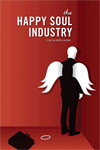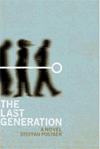This I cannot give up…
February 1, 2021

If we place instincts first…we will be pulled backward into disillusionment.
The line is from the Twelve & Twelve – a book Bill Wilson authored some twenty years after writing the Big Book of Alcoholics Anonymous. Cliff notes for the 12 Steps. He suggested recovering alcoholics begin removing their character defects lest they fall back into drinking. In keeping with the program’s Christian pedigree, defects were defined as the Seven Deadly Sins: Lust, Gluttony, Greed, Sloth, Wrath, Envy and Pride.
Lust wasn’t first on the list for nothing. Bill Wilson wrestled with his sexual appetites before and after getting sober and writing his manifesto. He adored his wife, revered her. But history suggests he liked the ladies, too. In the Big Book substantial text was devoted to prurient urges run amok. “Now about sex,” he wrote, “Many of us need an overhauling there.” You love AA was written by a man whose flaws did not go away after putting down the bottle.
Perhaps we shall be obliged in some cases still to say, “This I cannot give up yet…”
You’re not so depraved as to think this a loophole for misadventures. But you’re not willing to stop all of them either. You hadn’t been pulled backward into disillusionment. You were not bewildered by your actions. Yet. You were not dying inside. Yet. Nor were you drinking and using.
Yet.
The word clung. You didn’t need a sponsor to tell you how thin the ice was getting. You knew that you were playing a dangerous game, not only with your sobriety but with your family as well. In fact, you talked about it with your sponsor. Told him everything. He knew the primary reason you hadn’t stopped. You liked it too much.
The Flicker Inside (2)
March 18, 2020

Tonight’s format, the standard one: how it was and what it’s like now. You sit in front, facing the group and next to the Chairperson, the woman who’d volunteered you to speak. To begin the meeting she asks the usual questions: Were there any newcomers present, first timers to this meeting, or visitors? After welcoming these folks with applause, the group then recites How it Works, from the Big Book of Alcoholics Anonymous. While the laminated text is passed from one member to another, its familiar words emanating from familiar voices, you gather your thoughts.
Your heart was in your throat, but that’s okay, that’s where it should be. Whenever you spoke in front of others, be it at a business meeting or a gathering of Alcoholic’s Anonymous, you receive the most wonderful bout of stage fright. As you once told your daughter, Callie, the drama student, nervousness was a good thing; it meant you cared about your audience. Knowing that, took away the fear. Many tears ago you’d had the epiphany and have embraced public speaking ever since. On stage, at a pitch, or in AA, you welcomed the butterflies. They were your friends. They lifted you up.
Standing, you begin, as everyone does, by stating your first name and claiming your disease. Some thirty people say hello back. You will speak of the lines you crossed, the people you harmed and the many bottoms you hit. But first you open with some facts. You knew you were an addict long before you stopped using. For years you identified as a “functioning alcoholic.” You made money. Paid your bills. Started a family. And drank every night until you got drunk. Work hard. Play hard. Because that is what you thought adults did. And you did it with gusto. But you always knew. Eventually, your work began to suffer. Playing hard was not the appropriate description for drinking alone.



 The Happy Soul Industry
The Happy Soul Industry The Last Generation
The Last Generation